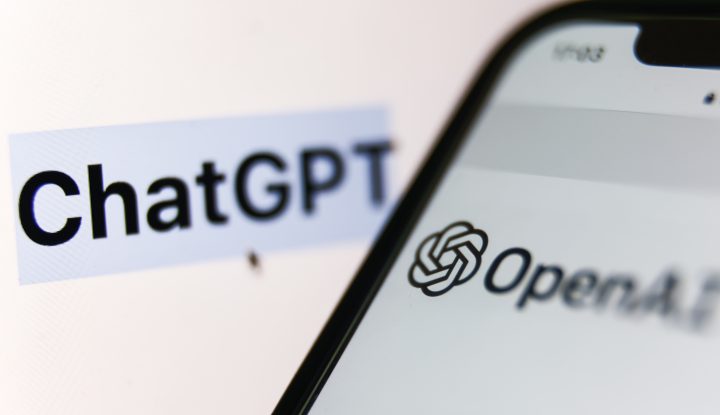Several Canadian universities are crafting policies on ChatGPT, a popular artificial intelligence (AI) tool that is raising plagiarism concerns in the education sector.

ChatGPT, an AI text generator released to the public last November by developer OpenAI, can be anything the user makes of it — it can take on the role of a chef and provide recipes, make business plans for marketers, create press releases for public relations specialists or give advice like a therapist.
Its public release has raised concerns about plagiarism, prompting one top French university to ban the use of ChatGPT, Reuters reported on Jan. 27. Sciences Po, whose main campus is in Paris, said punishment for using the program may go as far as exclusion from the school, or even from French higher education as a whole.
ChatGPT has already been banned in some public schools in New York City and Los Angeles, The Associated Press reported on Jan. 31. Several U.S. universities have announced plans to do fewer take-home assessments and more hand-written essays and oral exams, according to Reuters.
Numerous Canadian universities contacted by Global News said they were developing policies on how to respond to ChatGPT, with no ban in the works.
“Our main concern is that students are fairly and genuinely evaluated on meaningful exercises aimed at maximizing learning. The appropriateness of text generators or any other software available to students will be assessed at all times with this concern in mind,” Robert Mann, manager of discipline and appeals at Dalhousie University, said in a statement.
“We are in regular conversation with colleagues at other institutions and we have distributed up-to-date resources to faculty and academic integrity officers. At the moment, the allowable use of ChatGPT is being explored at the program delivery level. That said, there is every possibility that Dalhousie may adopt a more specific position on artificial intelligence tools in the near future, and we are continuing to explore and discuss the issue.”

The schools that responded to Global News’ inquiries, including the University of Toronto, McGill University, the University of Manitoba, the University of Saskatchewan, the University of Alberta and the University of British Columbia (UBC), stressed the importance of academic integrity in education.
“AI tools come with both potential benefits and real challenges; it has the potential to support and enhance learning, but can also be used to pass work off as your own,” Simon Bates, acting vice-provost and associate vice-president, teaching and learning at UBC Vancouver, said in a statement.
“Shortly after the public release of ChatGPT v3, we collated reports, guidance and advice for faculty ahead of the start of this semester as they finalized course syllabi. We are also in the process of developing a newsletter and FAQ as part of our educative approach to academic integrity, which will be shared with faculty and students.”
- Satellite built by N.B. students not responding a week after entering Earth’s orbit
- Stuck in B.C. lagoon for weeks, killer whale calf is finally free
- T. Rex an intelligent tool-user and culture-builder? Not so fast, says new U of A research
- After raising a stink, trash cans to return to Montreal’s Lachine Canal
Alona Fyshe, a professor of computing science at the University of Alberta, told Global News earlier this week that her students are using ChatGPT to answer questions about class content, rather than coming to her.
“They can use ChatGPT to explain it to them in multiple different ways, and maybe one of those ways would make more sense than how I explained it,” she said.
Fyshe added that under most university polices, submitting work written by someone – or something – else and claiming it as your own is plagiarism.
However, she said it would be hard to detect ChatGPT text without a computer to analyze it. In response to plagiarism fears, OpenAI on Jan. 31 announced it was releasing a new tool that can help teachers detect work not written by the student who submitted it.
A spokesperson for the University of Alberta told Global News that the school has seen an increase in “academic integrity cases where students are alleged to have used AI to assist in the completion of their assignments, preceding the arrival of ChatGPT.” It is creating a task force to probe the role of AI in the classroom.
The university “has been encouraging instructors and students to discuss when and if tools like ChatGPT are to be in use. The taskforce will draft recommendations on next steps for our academic community,” they said.
ChatGPT does have the potential to be integrated into the classroom, Fyshe said.
“It’s also a neat tool to expand your creative process. We should think about how to use ChatGPT in education to make it better, more interesting, more fun,” she said.
“In the short term, I absolutely understand the knee-jerk response is to shut it down … but I think the future of writing is probably a process that includes something like ChatGPT.”

Andrew Piper, a professor at McGill University in the department of languages, literatures and cultures, told Global News earlier this week that institutions shouldn’t ban ChatGPT.
A ban doesn’t do “anyone a service,” he argued.
“Because then we’re not learning about the technology and we’re not helping students get familiar with it,” Piper said.
“On the other hand, we can’t just turn a blind eye to it. We know it’s happening. We know it’s good at certain tasks, so we have to figure out as an institution and as educators, where can this facilitate learning and where is this inhibiting learning, and then create policies appropriately.”
— with files from Global News’ Ross Lord





Comments